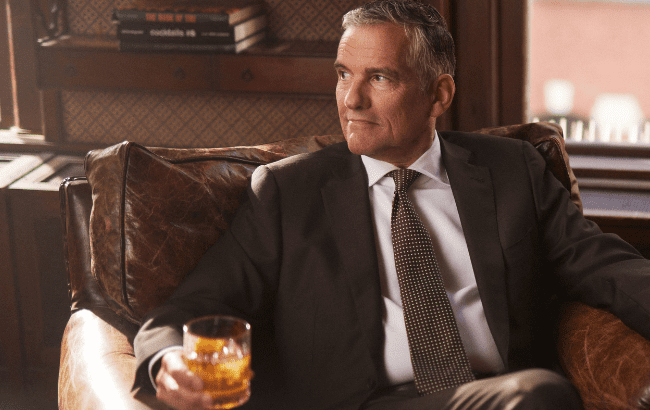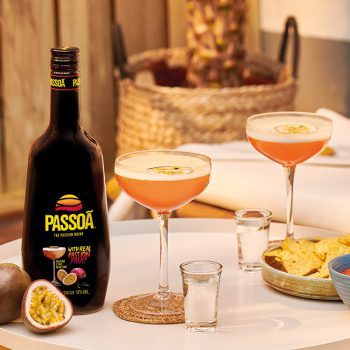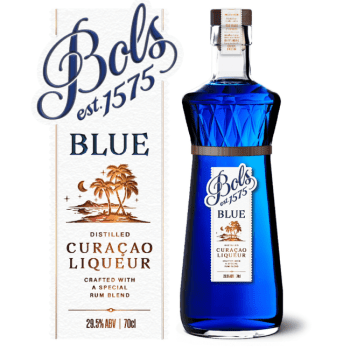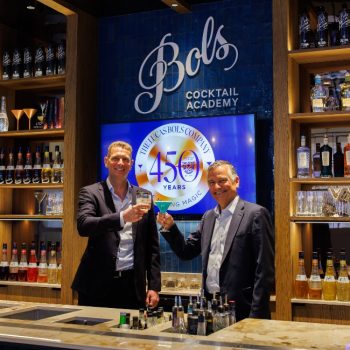Outgoing Lucas Bols CEO looks back on 20 years
By Rupert HohwielerAs Huub Van Doorne gets ready to call time on his 20-year tenure as Lucas Bols CEO at the end of the month, he chats to us about the highlights.

The transition period at the top of Dutch firm Lucas Bols’ leadership is coming to an end soon, with Huub Van Doorne retiring from his CEO role at the end of the month, passing the baton to chief financial officer (CFO) Frank Cocx.
Van Doorne will become chairman of the company’s supervisory board from 1 January 2026.
“It’s a new chapter, and it’s good, you need the new generation,” Van Doorne tells The Spirits Business of his decision to call time his CEO career. “I have been in operational roles for 42 years now.”
Van Doorne acquired Lucas Bols in 2005 from Rémy Cointreau with the AAC capital, a Benelux private equity firm. Before Lucas Bols, Van Doorne had been at Rémy Cointreau for 15 years, starting as its managing director in the Netherlands, then moving to Mexico where he set up a distribution company for the French firm before moving to its head office in Paris.
Casting his mind over the highlights from the past 20 years, he contends that there is “always unfinished business”, but repositioning the company’s focus globally and creating cocktail experiences around the world, may have been his biggest successes.
Talking of the company’s headquarters in Amsterdam, he explains: “This building here in the heart of the city [is where] we created the Cocktail Academy and our office upstairs, starting up with a brand new team. We’ve had organic growth through our global cocktail brands – Galliano, Bols Cocktails and Passoã.

“We’ve also added some nice brands like Passoã, which we bought off Rémy Cointreau and is now the number one liqueur for the Pornstar Martini in the UK. We acquired Tequila Partida and Fluere, which is a non-alcoholic brand that has been a great complement to our portfolio. Then we established our own import company in the US in 2010. We have been on the stock market in 2015. Lots of things.”
Global focus
A key part of the firm’s strategy under Van Doorne has been taking a global focus, which he’s had to split according to where developments are in the cocktail world.
In the US, cocktail culture is widespread due to a good understanding of serves, in a market like China, however, the general consumer is not as an educated, despite some bars operating at a high international level in Shanghai and other developed parts of China, such as Guangzhou.
Van Doorne believes achieving sophistication in cocktails across all of China will take some time, but it’s a very interesting market.
“You now see [cocktail culture] going to other cities in China. You see a broader acceptance and younger people are no longer looking for the high-end Cognac, or whisky, and instead cocktails are becoming a part of their lifestyle.”
Lucas Bols has a team of six in China and has been in the market there for a long time, which Van Doorne says will reap benefits for the company.
“When China really takes off and people discover cocktails, and the on-trade is more geared towards that, we’re one of the first, not only to drive it, but also to benefit from it.
“If you see where the potential is for growth, for spirits in general, I think it’s Eastern Europe towards Asia, because there’s still so much potential to change people from the local products to more the international products,” he adds.
Cocktail brand
First and foremost Lucas Bols is a cocktail brand.
“That’s what we do and that’s what we are aiming at,” Van Doorne says. “The younger generations are making different choices to us [the older generations], which is making cocktails more famous. The beauty, for example, is when we started here in the Netherlands, there were not that many people doing cocktails.
“People said: ‘how can you work with Lucas Bols company on cocktails?’ and I replied: ‘Listen, if you look at the future, why wouldn’t we drink cocktails?’ It’s a matter of training bartenders and educating the on-trade – seeing if they can offer something different.”
These days its rare to find a restaurant or bar in the Netherlands that doesn’t offer cocktails, with the category competing against beer and wine, and the consumer has more choice. Van Doorne adds that being able to “take nice photos” of cocktails is a key ordering factor in today’s age.
“If you look at the general trends, what people say is that maybe we drink a bit carefully when we consume alcohol or not, so why not make it a nicer serve or with a high-quality brand? That is how it works.”
In terms of product development, the key priority for the company this year has been the revamping of its flagship blue Curaçao liqueur Bols Blue – which was launched to coincide with the company’s 450th anniversary in April.

Assessing other categories, Van Doorne notes whisky is tough to enter as the big players are already firmly entrenched there, and there’s lot of time required with ageing, however getting into the Tequila sector made sense for the company.
“So we might have the knowledge with whisky, but sometimes its also a choice of saying: ‘okay, that is not the area for us ’. With Tequila, it’s part of the Margarita, and the Margarita is one of our most important cocktails in the US with our triple sec, and also some other liqueurs, so there is that synergy.”
The primary focus though is Bols Cocktails and liqueurs, where Lucus Bols sells in 110 countries. “The liqueur range is a global brand – and if you take a brand like Passoã that is 50 to 60 markets. Galliano is probably around 50-60 as well, and then Tequila Partida is primarily US-based, although we are also launched in the Benelux. So we go step-by-step.”
RTDs and genever
Although cans are also very important for the Passoã brand, the ready-to-drink (RTD) space is a tough and competitive market to stand out in on the shelf, Van Doorne admits.
“There are many brands offering the same thing, so everyone is jumping on it. The winners are basically the well-known brands with a simple mixture. And then you have a few exceptions with new brands that come in only in a can, and they become big.”
The other challenge for RTDs is that often you need to have production in the market itself, Van Doorne observes, because “to produce cans and put them over in a container and ship them, that is expensive and sometimes the shelf life can expire.
“Its not that you can’t drink it – the quality goes down and retailers are very strict with what they stock. It should be at least six months or maybe even more than that, otherwise they won’t take it.
“Retailers hate that of course, when products are running out of life, because they are not supposed to sell that. That is an important factor in the RTD world – if you need long leader times and to consider logistics that take weeks or months.”
Genever is also still the company’s “big dream”, but he explains it’s hard to build awareness for a “forgotten spirit”.
“People don’t know it, but they have to get to know it – what it is and how it works. Something needs to happen where all of a sudden people say ‘Oh, wow, this is great’. We are continuing to push it, but we haven’t had that breakthrough moment yet, let say.
“We have done liquid on lips successfully I think at the top-end of the on-trade, but are working on how to get it to the mainstream.
“People sometimes think it’s a gin, but it’s not a gin because it’s a malt spirit, which is the base – almost between a whisky and a vodka. A gin is much more botanical and with a different flavour. So if you expect gin, well, it’s not gin, it’s genever – it’s got a similar name and it’s the grandfather.”
Pre-Covid levels
Van Doorne says Lucas Bols is still coming out of a turbulent period following Covid, like the rest of the spirits industry, with shortages and inflation, and now the talk of tariffs.

“It’s a hectic world at the moment,” he says.
“Half of our business is in the on-trade, so when that closed almost overnight when Covid happened, can you imagine?
There were benefits to the situation, however, which Van Doorne notes: “People started to make drinks at home, so that was good for cocktails, because people started to prepare cocktails, or they were almost forced to do it. That itself has led to some more activities for us.
“We should not forget – people tend to forget – there has been a period of at least nine months where there was hardly any availability of glass, bottles, labels and containers. So in those days, what happened is that for customers, retailers, and wholesalers to get products, they would put in twice as much as normal, 50% more, 25% more.
“They would send it to me, because it might be in the stock, and that’s why we now have a period of what we call ‘de-stocking’. That has to normalise – especially in America.
“That’s the big market for spirits. It is the most important. So now we get into a more normalised period. If you now look at the businesses of spirits companies, then actually you could say we are close to 2019, where we were before Covid.”
Related news
Lucas Bols prepares for new premium era
